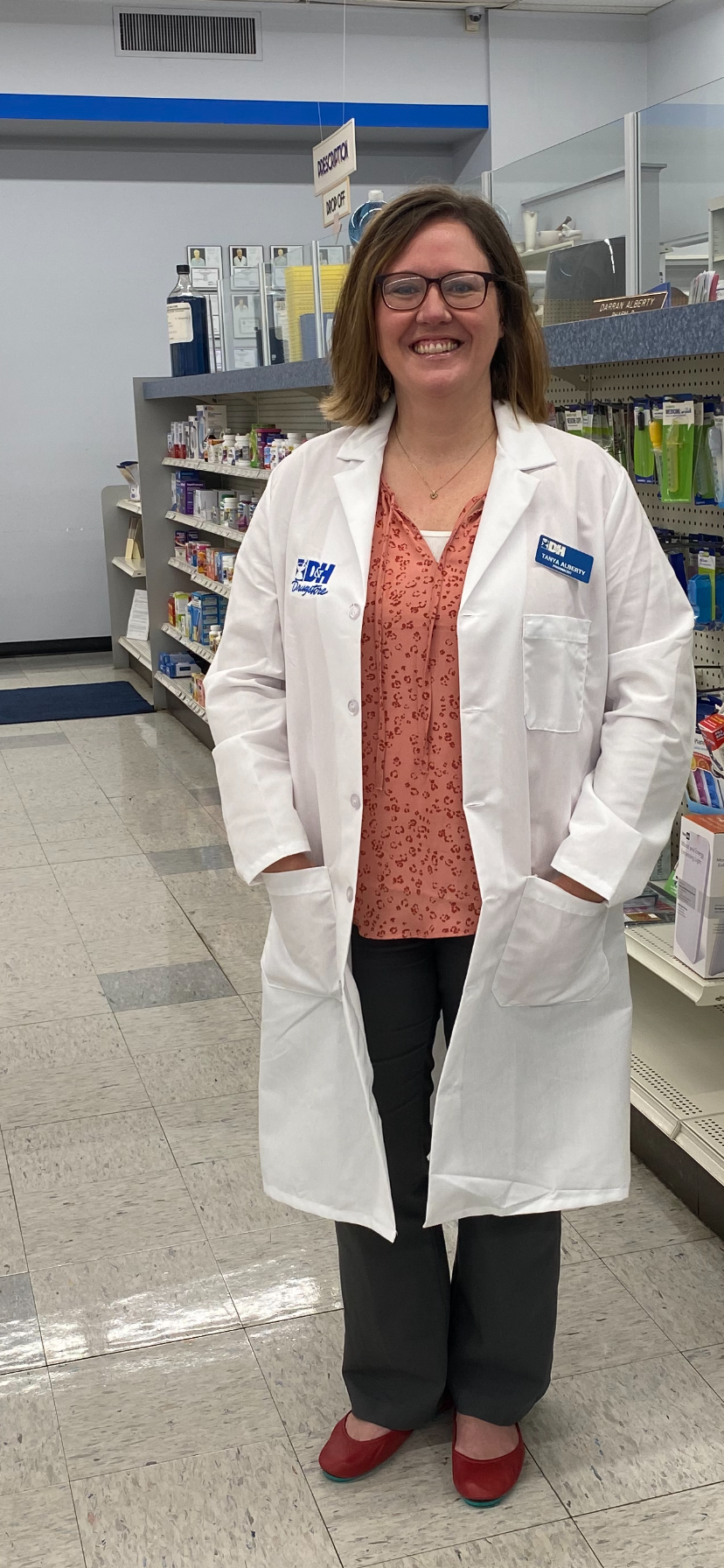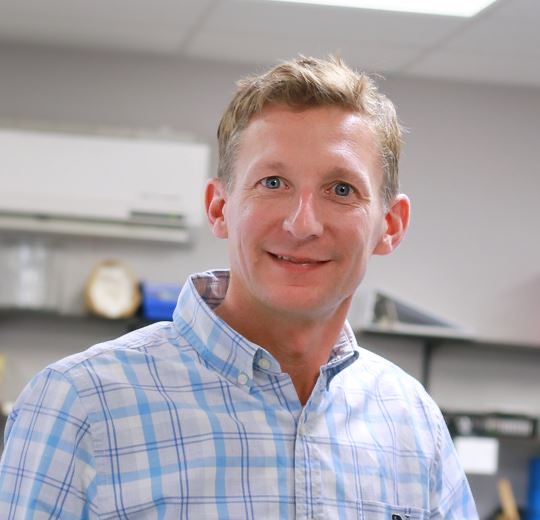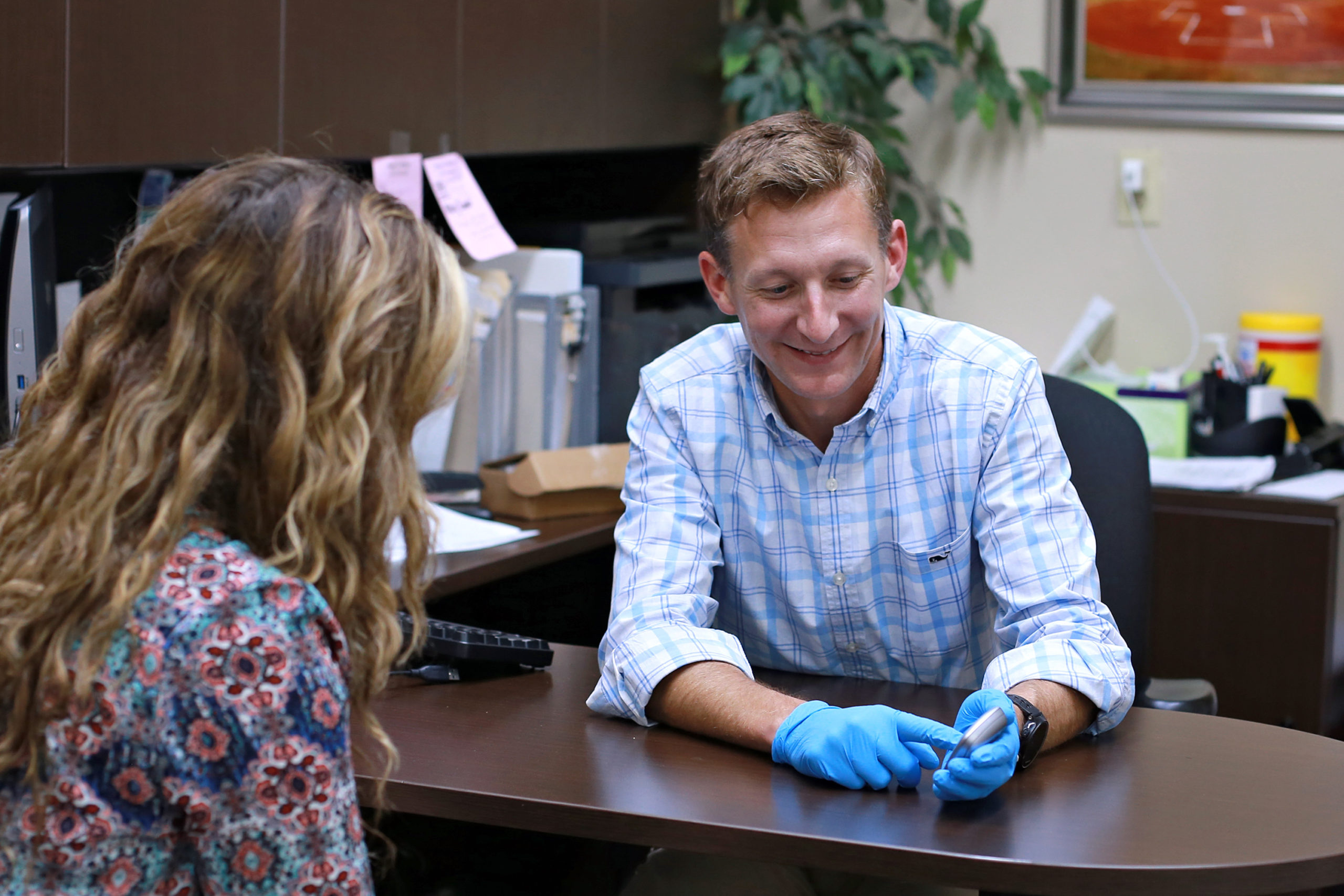This article originally appeared in the Missouri Pharmacy Association‘s March 2021 Missouri Pharmacist magazine. Vaccine distribution numbers have been updated to reflect the state’s data as of March 18.
With more than 180,000 residents, Boone County is one of the more populous in the state and is home to the University of Missouri, which has been able to host mass testing and coronavirus vaccination events. But those types of mass events aren’t always easily accessible for the county’s disabled or older population.
That’s where Tanya Alberty and her local pharmacies come in. Along with her husband, Alberty owns two pharmacies, D&H Drugstore, in Columbia. They gave their first doses of the vaccine on Dec. 20, making them one of the first pharmacies in Missouri to get approved and to vaccinate. Since, her pharmacies have administered more than 2,500 doses.

“The work hasn’t stopped for sure, and we’re excited to be a part of it. We’ve had a lot of volunteer help, a lot of people out in the community who are just excited that we have access,” Alberty said.
Alberty serves a unique need in her community: residents who are not able to attend a mass vaccination site for any number of reasons — accessibility, safety concerns, or other issues. She said they’ve assisted many people who are at least 90 or older and are a resource for independent living facilities and other entities that don’t qualify as nursing homes eligible for federal partnerships.
“The 65-year age group and older, a lot of them have mobility issues. They’re in wheelchairs [or] walkers. Even with help from their children, they just really have issues getting to an event like that,” Alberty said. “We do feel like we’re reaching some of the most vulnerable population. Those are the ones who, unfortunately, if they became positive, would really struggle to recover.”
So Alberty’s pharmacies have offered curbside service — allowing patients to sit in their cars while they receive the vaccine. And they’ve partnered with a local church to offer a larger vaccination event held in a gymnasium with a parking lot that can be easily navigated. Volunteers, retired pharmacists, and nursing students are standing by, ready to help.
“It’s a team effort,” she said.
Meanwhile, about 200 miles south of Columbia, Tripp Logan and his pharmacies are also attempting to reach individuals who might not be served by a mass vaccination event. A second-generation pharmacist, Logan operates L&S Pharmacy in Charleston and Medical Arts Pharmacy in Sikeston. A third operation is planned for south Sikeston, which would place Logan in three counties in southeastern Missouri.
The community, Logan pointed out, is extremely rural and underserved when it comes to health care. Transportation proves to be an issue for many, and broadband access can be scarce.
“Anybody in Missouri knows, New Madrid and Mississippi counties are typically some of your more high-need counties — low health outcomes, low health literacy, provider deserts,” he said.
So to reach his people, Logan has to continuously collaborate with local community groups, health centers, churches, and leaders. Even his father has personally traveled into homes to administer vaccines to people unable to leave their homes. That process is inefficient and expensive, he said, and it is unsustainable — but for now, it’s what they have to do.
“It takes a lot of collaboration to get the job done in these communities. COVID just amplified that quite a bit,” Logan said. “Not only are there underserved shut-ins in the middle of nowhere with spotty power and water sometimes, but now they’re isolated even more due to COVID quarantines or shutdowns. It gets them even more detached from the health care system or social services or schools or work.”

“I’d be naive to say that these communities are affected more greatly by COVID than others — because everyone’s really been affected regardless of your location — but there’s a unique set of circumstances that end up falling on members of our communities when stuff like this, adversary, happens.”
Logan said his pharmacies required masks, installed plexiglass, and enacted other protections for staff members early on. They began to increase delivery service, offer curbside service, and partnered with Meals on Wheels, the local health department, and other entities to provide services aside from just the vaccine to the community.
And he enacted different approaches for his two pharmacies. In Scott County, his pharmacy partnered with other health centers, including the Missouri Delta Medical Center, to pool resources. Once the health system received vaccines, his pharmacy helped fill the clinics with patients and sent pharmacists to fill syringes, prep clinics, and mix the vaccine, he said.
In Mississippi County, without a robust health system, it was up to the independent pharmacies to serve as access points for the vaccine to enter the community. The five entities “created a consortium” and speak daily.
“I can say all kinds of positive stories about how our community has stepped up. But we still have populations that are untouched, underserved, and disproportionately affected by the vaccine rollout,” Logan said. “Despite our ongoing attempts, it’s just really tough to help these people. And that’s at the top of my mind right now.”
Both Alberty and Logan, too, have to navigate the vaccination tiers set at the state level. As of Feb. 24, Missouri was vaccinating individuals in Tiers 1 and 2 of Phase 1B. That includes first responders, individuals who are at least 65 years old, and people who have or at risk for a severe illness.
So far, more than 1.9 million doses of the vaccine have been administered in Missouri with nearly 21 percent of the population receiving at least one dose, according to state data. More than 65,000 vaccines have been administered in Boone County. In Mississippi County, about 4,500 doses have been administered; whereas, in Scott County, 15,345 have been given.
For Logan, the struggle is balancing the amount of doses pharmacies request with the number of people who still qualify and would be able and willing to get vaccinated.
“That’s an inefficient delivery system to go out throughout the county and vaccinate with the current storage condition of the vaccine and the 15-30 minute waiting time,” he said. “It’s really not feasible for us to go out and vaccinate in the community only where our remaining members are, and we can’t vaccinate anyone outside of the current phase. It’s creating these brand new challenges.”
But as Missouri unlocks additional tiers eligible for vaccines, Alberty has to balance a new class of people with those in earlier groups who are still waiting.
“There are certain people you need to outreach to, for sure. How do you prioritize different groups?” she said. “It’s not an easy answer.”
But despite the challenges that Alberty and Logan face — both unique and similar — the pair have individually shown a propensity for partnership and tenacity when it comes to serving their community — whether that’s to combat COVID-19 or any other health issue. And Missourians in their neck of the woods are sure to see that dedication to service continue.

Kaitlyn Schallhorn was the editor in chief of The Missouri Times from 2020-2022. She joined the newspaper in early 2019 after working as a reporter for Fox News in New York City.
Throughout her career, Kaitlyn has covered political campaigns across the U.S., including the 2016 presidential election, and humanitarian aid efforts in Africa and the Middle East.
She is a native of Missouri who studied journalism at Winthrop University in South Carolina. She is also an alumna of the National Journalism Center in Washington, D.C.
Contact Kaitlyn at kaitlyn@themissouritimes.com.

















